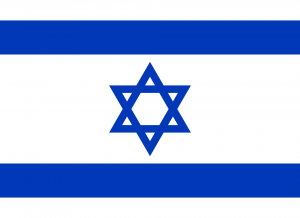On Law Schools, Israel, And Antisemitism
We must stand against Hamas’s terrorism targeting both Israelis and Palestinians. We must unite.
 As an Iranian-Jewish attorney, I find it disheartening to witness students in law schools across the nation justifying and even endorsing the terrorist attacks carried out by Hamas on Israel. It is especially painful to see it happen at UCLA, my alma mater. It’s been over one month since Hamas executed one of the most heinous terrorist acts the world has ever seen. The brutality inflicted on children, the violence against women, and the exploitation of the vulnerable elderly are atrocities that should evoke universal condemnation. Yet students on law school and college campuses are still voicing their justification and even celebration of these inhumane attacks.
As an Iranian-Jewish attorney, I find it disheartening to witness students in law schools across the nation justifying and even endorsing the terrorist attacks carried out by Hamas on Israel. It is especially painful to see it happen at UCLA, my alma mater. It’s been over one month since Hamas executed one of the most heinous terrorist acts the world has ever seen. The brutality inflicted on children, the violence against women, and the exploitation of the vulnerable elderly are atrocities that should evoke universal condemnation. Yet students on law school and college campuses are still voicing their justification and even celebration of these inhumane attacks.
For instance, Ryna Workman, the president of NYU’s student bar association, said Israel — not Hamas, the actual genocidal perpetrators — bears “full responsibility” for the October 7 massacre, which killed more than 1,400 people. Over 30 student groups at Harvard University placed the blame on Israel in a signed letter. Cornell University Professor Russell Rickford, at a pro-Palestine rally, praised Hamas for challenging the “monopoly of violence” and claimed it had “shifted the balance of power.” He described the attack as “exhilarating” and “energizing.” Meanwhile, students at George Washington University projected a message glorifying Hamas and endorsing terror against Israelis with the statement “glory to our martyrs.”
Yet still, I am most shaken by an incident that occurred at UCLA School of Law on October 30 and by the school’s disconcerting response. Two UCLA Law students tore down posters showing the photos of the abducted Israeli children taken hostage by Hamas just minutes after they were displayed by members of UCLA’s Jewish Law Students Association on their organization’s bulletin board. Jewish observers who were present at the time recorded this incident.

The Smartfirm Playbook - Thriving In Today’s Legal Landscape
Tearing down posters of innocent civilians, including a 10-month-old child, is not resistance. Instead, it amounts to a campaign promoting dehumanization and callous disregard for human life. Sadly, this campaign is not only accepted on campuses, but even praised. These posters feature the word “kidnapped” alongside a photo of the hostage, their name, age, and nationality. Importantly, these posters do not convey a political message or advocate violence against Palestinians. Yet, many anti-Israel students are reluctant to acknowledge the suffering of both innocent Israelis and Palestinians.
Israeli children are being held in inhumane conditions, underground and alone, after witnessing the massacre of their families. It begs the question: Why can’t protestors advocate for the release of hostages while also pleading for the protection of children in Gaza?
In addition to the poster incident, anti-Israel UCLA Law students targeted Jewish students on campus chanting “there is only one solution, Intifada revolution,” alluding to violent attacks by Palestinians on Israelis. Protestors also echoed the phrase “from the river to the sea, Palestine will be free,” signaling a call for the complete destruction of Israel and ethnic cleansing of the Jewish people. One Jewish student, who wished to remain anonymous, recounted being so frightened that she “left class shaking, crying, unable to breath, and dizzy, and had no choice but to contact the administration.”
The undergraduate students at UCLA also engaged in antisemitic behavior. On November 8, a disturbing incident was captured on film, depicting students violently battering a piñata displaying the face of Israel’s Prime Minister Benjamin Netanyahu while chanting, “Beat that f—king Jew!” The crowd went wild as a man masked in a keffiyeh punched, kicked, and tore down the piñata.
Sponsored

InterAction+ Brings Power Of CRM Software To Law Firms Of All Sizes

How Generative AI Is Disrupting Law Firm Billing Practices

LawPay Pro Offers Upgraded Time And Billing Essentials

How to Achieve Quicker, More Valuable Case Settlements with Minimal Effort: A Guide for Personal Injury Lawyers
In my opinion, the UCLA Law administration has fallen short in safeguarding its Jewish students from antisemitism on campus. The failure of the UCLA Law administration to take a stance against antisemitism has left the Jewish students feeling marginalized, ostracized, and fearful for their lives. I hold higher expectations for my dream school, UCLA Law — an esteemed institution tasked with educating our future leaders.
Notably, on November 3, Assistant Dean Bayrex Martí, purporting to speak on behalf of the UCLA Law administration, made a statement via email and Instagram which leaned against the Jewish students involved in filming, rather than addressing the students who tore down the posters of the hostages. The statement chastised the students for “one incident in which students were filmed in our hallways and made to feel unsafe.” It went on to label such recording as bullying subject to internal “disciplinary processes,” and even potential reporting to the state bar. Toward the end of the statement, Martí spent one sentence in his 10-slide post to briefly state that “students should not move or take down flyers on another organization’s board.”
In the complex landscape of the Middle East, there are rarely easy answers. However, as members of the legal profession we should unequivocally condemn terrorism and help protect the Jewish community. As attorneys, it is our duty to advocate for human rights irrespective of the race, religion, or ethnicity of those suffering. There should be no qualification to the statement that terrorism is wrong. Without understanding and affirming this fundamental principle, there is no moral ground to navigate. The lens through which I view this truth is colored by my upbringing as the child of Iranian refugees.
After the 1979 Islamic Revolution, my parents were forced to escape from Iran — a state that unjustly arrests, imprisons, and tortures individuals for holding any belief that does not conform with their extremist Islamic ideology. Just last year, Mahsa Amini was killed by Iran’s morality police for violating the hijab law by showing her hair. Her unjustified death sparked an uprising in Iran, leading to the death and arrest of hundreds of innocent Iranians. Outraged individuals nationwide showed their support for Mahsa and her peers, protesting for change in Iran. Interestingly, some of the same students who participated in these protests now justify the actions of Hamas. What they fail to recognize in their support for the Palestinians, blinded by their hatred toward Israel, is the close link between Hamas and the Islamic Republic of Iran.
The military branch of the Islamic Republic of Iran, tasked with exporting the Islamic Revolution, is the Islamic Revolutionary Guard Corps (IRGC). The IRGC and Hamas, which are both designated as terrorist organizations by the United States, are united in their official policy to eradicate the state of Israel. As confirmed by President Joe Biden’s national security adviser, Jake Sullivan, the IRGC played a large role in orchestrating the October 7 attacks by providing funding, weapons, and training to Hamas, one of Iran’s many proxies in the Middle East. According to a 2020 report by the U.S. State Department, Iran provides up to $100 million annually in combined support to Palestinian terrorist groups, including Hamas. The United States designates Iran as the world’s leading state sponsor of terrorism for supporting proxies and terrorist organizations across the Middle East, including groups in Syria, Iraq, Lebanon, Yemen, and Gaza. Despite this, many anti-Israel voices maintain the position that Hamas members are “freedom fighters.”
Sponsored

The Smartfirm Playbook - Thriving In Today’s Legal Landscape

How to Achieve Quicker, More Valuable Case Settlements with Minimal Effort: A Guide for Personal Injury Lawyers
However, it’s essential to shed light on the reality that, akin to the IRGC, Hamas does not value Palestinian lives any more than Israeli lives. Within Gaza, Hamas engages in human rights abuses, executing LGBTQ individuals, subjugating women to servitude, using civilians as “human shields” by engaging in terrorism from schools and hospitals, and shooting those attempting to escape. While the people of Gaza suffer, Hamas leaders reside with their billions in Qatar, diverting international aid meant for improving living conditions towards funding their lavish lifestyles and acquiring weapons.
Iranians do not necessarily share their government’s support for Hamas. The people of Iran, facing a similar existential threat as those in Israel, resent the Islamic Republic for diverting resources that should be benefiting Iranians to proxies in the Middle East. Moreover, their firsthand experience allows them to recognize that these terrorist regimes cause more harm to the Palestinians. The day after the October 7 attacks, the crowd at a stadium in Tehran even booed pro-government figures carrying a Palestinian flag.
However, students living in the comfort of the Western world, claiming to support social justice and human rights, have ironically sympathized with terrorism. This mirrors the mistakes of many Iranian students who regrettably supported Ayatollah Khomeini in overthrowing the Shah and replacing his Western values with Sharia law in 1979.
Civilians are dying in Iran, Israel, Gaza, and across the Middle East. We must recognize each other’s pain. We must stand against Hamas’s terrorism targeting both Israelis and Palestinians. We must unite. Unless we are able to bring the conversation back to peace, there is no hope.
Nicolette Shamsian joined Above the Law as a fashion law columnist in 2023. Nicolette earned her B.A., summa cum laude, in Political Science and minor in Entrepreneurship from the University of California, Los Angeles and her Juris Doctor from UCLA School of Law. Nicolette is an attorney whose work focuses on intellectual property litigation. As a fashion law aficionado, Nicolette enjoys leading discussions to keep attorneys up to date on noteworthy fashion law cases.







